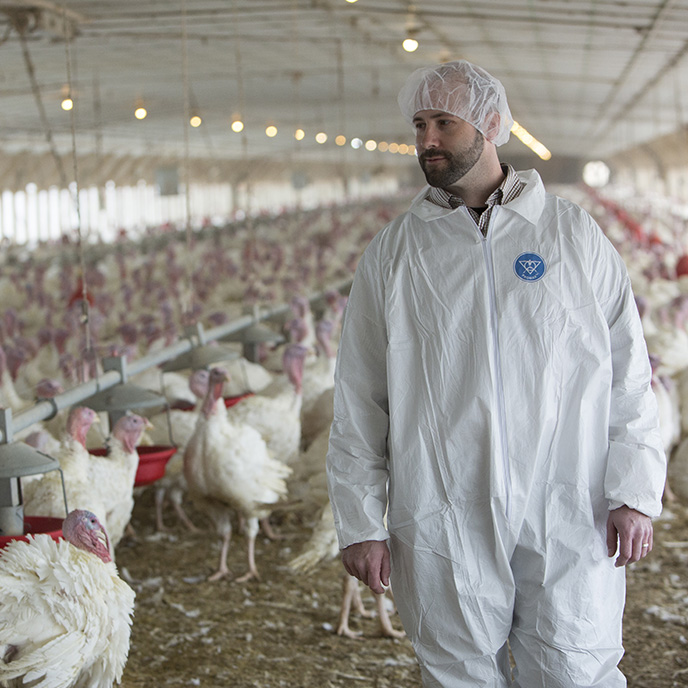
Larry Sadler (’13 PhD biomedical sciences)
Lorraine J. Hoffman Graduate Alumni Award
Dr. Larry Sadler was in the right place at the right time.
“I recognized that if I wanted to be involved in production animal welfare in the way I wanted to be, I would need advanced degrees,” Sadler said. “I was fortunate as I was finishing my master’s degree in animal physiology at Iowa State, Dr. (Suzanne) Millman was starting up her lab and had a PhD position available.”
That job and the subsequent PhD he earned, positioned Sadler for a career with the United Egg Producers where he has maintained a steadfast commitment to proper and humane animal care.
That commitment was forged early in life and fortified during his PhD work with Millman.
“Certainly, the course work and practical aspects correctly prepared me for the technical aspects of assessing, reviewing, and being able to identify critical components of animal welfare,” Sadler said. “But my best preparation came from the people I worked with.
“Learning from them how to engage in the field of animal welfare and many other disciplines was incredibly valuable.”
Since earning his PhD, Sadler has worked in a variety of roles including serving as the associate director of animal welfare at Kraft Heinz, where he was the first animal welfare specialist at the company. There he developed the company’s initial animal welfare standards across beef, pork, dairy, and eggs.
From there he moved to United Egg Producers (UEP), where is currently a senior vice president of animal welfare. The cooperative of U.S. egg farmers work collaborative to address legislative, regulatory and advocacy issues impacting the industry where more than 95% of all eggs produced in the United State are produced under the UEP Certified Program.
In his role, Sadler is a technical advisor to egg producers for all aspects of hen welfare, serving as a go-to when issues or questions arise. He also led the development of animal welfare training videos for the egg industry, which are used to train most U.S. laying-hen caregivers.
“It just always seemed so important to me that animals we utilize be treated with care, respect, and understanding,” Sadler said.
Unfortunately Sadler’s job does come with a drawback.
“Due to biosecurity protocols, I can’t keep backyard chickens of my own,” he said. “If I had any birds, I wouldn’t be allowed to visit layer farms, which is a significant part of my job.
“I guess I’ll have to wait to get a backyard flock when I retire.”
June 2024
